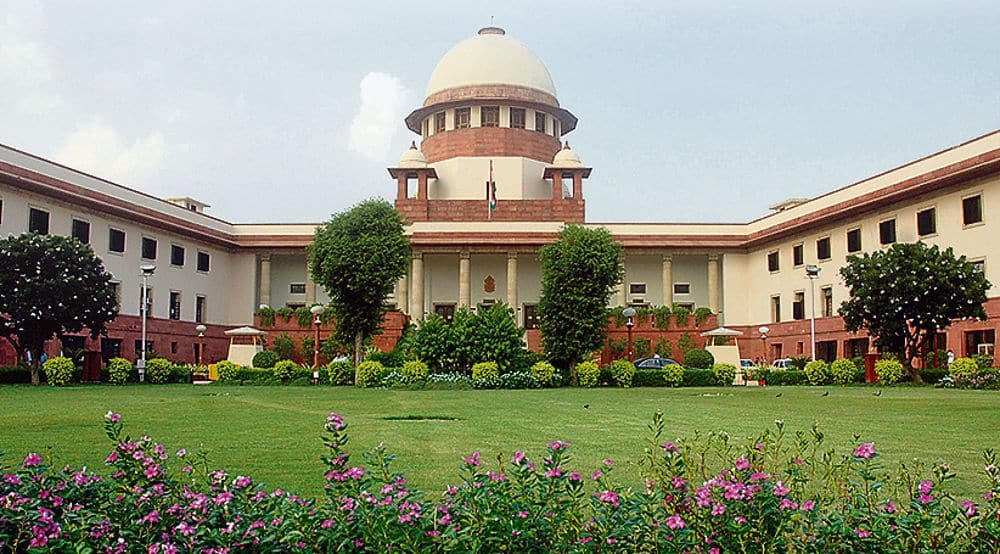About Supreme Court Collegium:
- What is it?
- It is a system under which appointments and transfers of judges are decided by a forum of the Chief Justice of India and the four senior-most judges of the Supreme Court.
- It has no place in the Indian Constitution.
- What does the Constitution actually prescribe?
- Article 124 deals with the appointment of Supreme Court judges. It says the appointment should be made by the President after consultation with such judges of the High Courts and the Supreme Court as the President may deem necessary. The CJI is to be consulted in all appointments, except his or her own.
- Article 217 deals with the appointment of High Court judges. It says a judge should be appointed by the President after consultation with the CJI and the Governor of the state. The Chief Justice of the High Court concerned too should be consulted.
- Evolution of Collegium system:
- Since Constitution mandates consultation with the CJI is necessary for appointments to judiciary, the collegium model evovled.
- It has its genesis in a series of three judgments that is now clubbed together as the Three Judges Cases.
- First Judges Case (1982):
- SC held that “consultation” of judges does not mean concurrence.
- Hence, it gave the primacy in appointment of judges to the Executive.
- Second Judges Case (1993):
- Court reversed its earlier ruling by changing the meaning of “consultation” to concurrence.
- With this, the advice tendered by CJI became binding. However, the CJI would have to take into account the views of two of his senior most colleagues.
- Third Judges Case (1998):
- Court gave primacy to the opinion of CJI in the matter of appointment of Judges.
- However, Chief Justice must consult four seniormost judges of SC.
- Opinion of all members of the collegium should be in writing.
- Even if two judges in the collegium give an adverse opinion of a person for appointment as the SC judge, the CJI should not send the recommendation to the government.
- These three cases established that the collegium headed by the Chief Justice of India will have primacy in the appointment of judges to the higher judiciary.
- This collegium makes recommendations to the government for appointment of judges to the SC and of Chief Justices of High Courts, and the transfers of HC judges.
- In case of difference of opinion, the majority view will prevail.
- Executive role:
- Judges of the higher judiciary are thus appointed only through the collegium system, and the government has a role only after names have been decided by the collegiums.
- The government’s role is limited to getting an inquiry conducted by the Intelligence Bureau (IB) if a lawyer is to be elevated as a judge in a High Court or the Supreme Court.
- The government can also raise objections and seek clarifications regarding the collegium’s choices, but if the collegium reiterates the same names, the government is bound to appoint them.
- Procedure for appointment of Judges to High Courts:
- For appointments or elevations to the high courts, the HC collegium (The HC Chief Justice + 2 senior-most judges) makes the recommendation to the state government.
- The State Government sends the names to the Centre with its input.
- The Centre gives the names to the Intelligence Bureau (IB) to conduct background checks.
- The IB then sends its report to the Supreme Court Collegium (CJI + 2 Senior-most judges).
- The SC Collegium goes through the IB report and recommends the names to the Centre for appointment.
Q1) What is the Intelligence Bureau (IB)?
It is India’s internal intelligence agency, responsible for gathering intelligence within the country’s borders to address and counter various threats to national security. The IB operates under the Ministry of Home Affairs, which oversees the agency’s functioning and activities.The IB works closely with other Indian intelligence and law enforcement agencies, such as the Research and Analysis Wing (RAW) and the Central Bureau of Investigation (CBI), to coordinate efforts in protecting the nation’s security and maintaining internal stability.
Source: SC Collegium recommends elevation of four advocates as judges to 3 HCs
Last updated on June, 2025
→ UPSC Notification 2025 was released on 22nd January 2025.
→ UPSC Prelims Result 2025 is out now for the CSE held on 25 May 2025.
→ UPSC Prelims Question Paper 2025 and Unofficial Prelims Answer Key 2025 are available now.
→ UPSC Calendar 2026 is released on 15th May, 2025.
→ The UPSC Vacancy 2025 were released 1129, out of which 979 were for UPSC CSE and remaining 150 are for UPSC IFoS.
→ UPSC Mains 2025 will be conducted on 22nd August 2025.
→ UPSC Prelims 2026 will be conducted on 24th May, 2026 & UPSC Mains 2026 will be conducted on 21st August 2026.
→ The UPSC Selection Process is of 3 stages-Prelims, Mains and Interview.
→ UPSC Result 2024 is released with latest UPSC Marksheet 2024. Check Now!
→ UPSC Toppers List 2024 is released now. Shakti Dubey is UPSC AIR 1 2024 Topper.
→ Also check Best IAS Coaching in Delhi






















